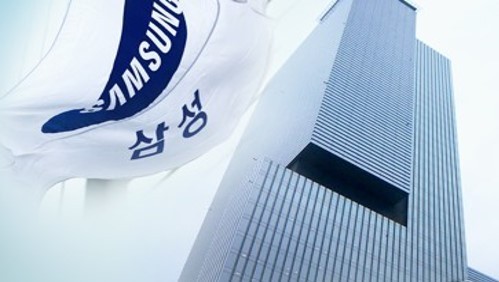Rapid growth of 5G market likely to help improve tech giant’s earnings in 2020, leading to recovery in memory demand
Samsung Electronics posted a 52.84 percent on-year decline in operating profit in 2019 due to the sluggish memory and display panel markets, according to its earnings report released Thursday.
However, prospects for the largest South Korean tech giant this year are bright going by its better-than-expected performance in the fourth quarter, company officials said during an earnings conference call.
Overall, the company recorded 230.4 trillion won ($194.85 billion) in sales last year, down 5.48 percent on-year, with an operating profit of 27.7 trillion won. Its net profit stood at 21.7 trillion won, down 50.98 percent.
The company’s most lucrative business unit, chipmaking, brought in a total of 14 trillion won for the whole year, accounting for 51.8 percent of its total operating profit. The figure plunged from around 80 percent over the past two to three years.
The company’s mobile business division earned 9.27 trillion won in total, while the consumer electronics division brought in 2.61 trillion won, the data showed.
In the final quarter of 2019, Samsung posted 59.88 trillion won in sales with operating profit of 7.16 trillion, a slight improvement from the previous quarter.
Samsung said in a statement that its fourth-quarter operating profit had dropped 33.7 percent on-year due to the continued fall in memory chip prices and lower demand for display panels.
But improving demand for memory in servers and mobile products, as well as solid sales of flagship smartphones, mitigated the decline in its overall earnings, according to the company.
Of the 7.16 trillion won fourth-quarter operating profit, the semiconductor division accounted for 3.45 trillion won, the mobile business division posted 2.52 trillion won and consumer electronics division logged 0.81 trillion won.
Samsung plans to focus on facilitating the growth of 5G services market this year in a bid to lead the recovery of the memory market, officials said during the conference call.
“Around 100 million to 300 million 5G phones are forecast to shipped out in 2020, which would, in the long term, serve as a growth momentum for large-storage memory chips and solid growth of both smartphone and memory businesses,” an official said.
Samsung is of the opinion that the memory market is currently going through a normalization process, and expects the market to stabilize this year.
“The recent rise in spot prices signals that the market is getting back on track,” said Han Jin-man, senior vice president at the memory business. “Both DRAM and NAND Flash are expected to see solid growth in demand. The bit growth for DRAM and NAND is forecast to be mid-10 percent and mid-20 percent, respectively.”
The mobile business division is planning to expand the share of 5G phones in its product lineup and launch higher-end premium models this year.
“To lead the market change (to 5G), the company will increase models, introduce new designs to the foldable lineup and differentiate the premium lineup,” said Lee Jong-min, vice president at the mobile unit.
“The 5G models will arrive with a broader range of retail price tags based on customer needs, while creating a new ‘super-premium’ category for foldable devices,” he said.
The company is working to ramp up its production capacity for the foldable lineup, the official added.


